Nissan Leaf VS Vauxhall Zafira Life – Specs, Efficiency & Price Comparison
Which model is the better choice – the Nissan Leaf or the Vauxhall Zafira Life? We compare performance (217 HP vs 136 HP), boot capacity (394 L vs 0 L), efficiency (16.70 kWh vs 24.60 kWh), and of course, the price (30800 £ vs 40800 £).
Find out now which car fits your needs better!
The Nissan Leaf (Hatchback) is powered by a Electric engine and comes with a Automatic transmission. In comparison, the Vauxhall Zafira Life (Bus) features a Electric engine and a Automatic gearbox.
When it comes to boot capacity, the Nissan Leaf offers 394 L, while the Vauxhall Zafira Life provides 0 L – depending on what matters most to you. If you’re looking for more power, you’ll need to decide whether the 217 HP of the Nissan Leaf or the 136 HP of the Vauxhall Zafira Life suits your needs better.
There are also differences in efficiency: 16.70 kWh vs 24.60 kWh. In terms of price, the Nissan Leaf starts at 30800 £, while the Vauxhall Zafira Life is available from 40800 £.
Compare all the key specs now and find out which model fits your lifestyle best!
Nissan Leaf
The Nissan Leaf stands out as a pioneering model in the realm of electric vehicles, known for its impressive blend of practicality and eco-friendliness. It offers a smooth and quiet driving experience, making it an ideal choice for city commuting and longer journeys alike. The interior design is both comfortable and intuitive, providing drivers with a sense of modernity and ease of use.
details @ germany.nissannews.com
@ germany.nissannews.com
 @ germany.nissannews.com
@ germany.nissannews.com
 @ germany.nissannews.com
@ germany.nissannews.com
 @ germany.nissannews.com
@ germany.nissannews.com
Vauxhall Zafira Life
The Opel Zafira Life offers a versatile and comfortable driving experience, making it an ideal choice for families and group outings. Its spacious interior is thoughtfully designed, ensuring ample room for passengers and luggage alike. Modern features and a sleek exterior design give it a contemporary edge while maintaining practicality for everyday use.
details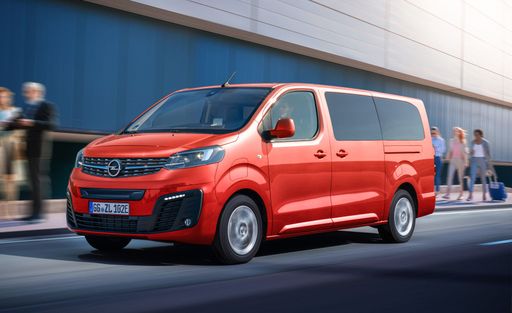 @ Stellantis
@ Stellantis
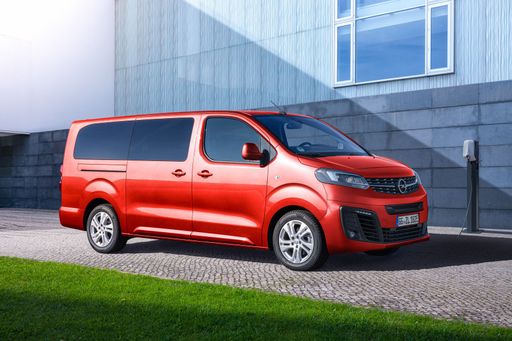 @ Stellantis
@ Stellantis
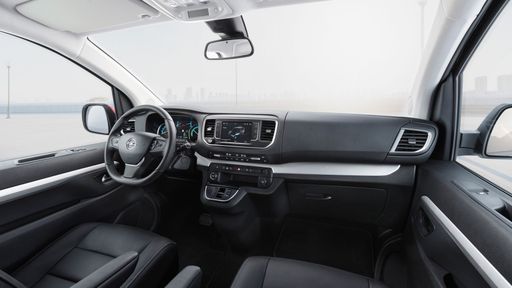 @ Stellantis
@ Stellantis
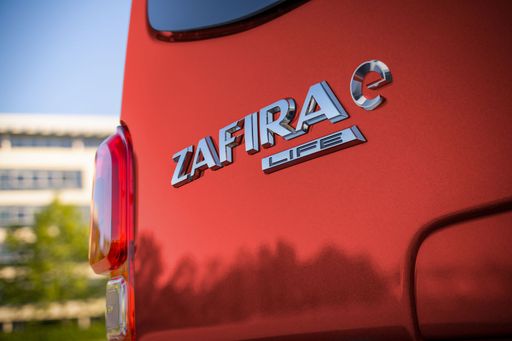 @ Stellantis
@ Stellantis
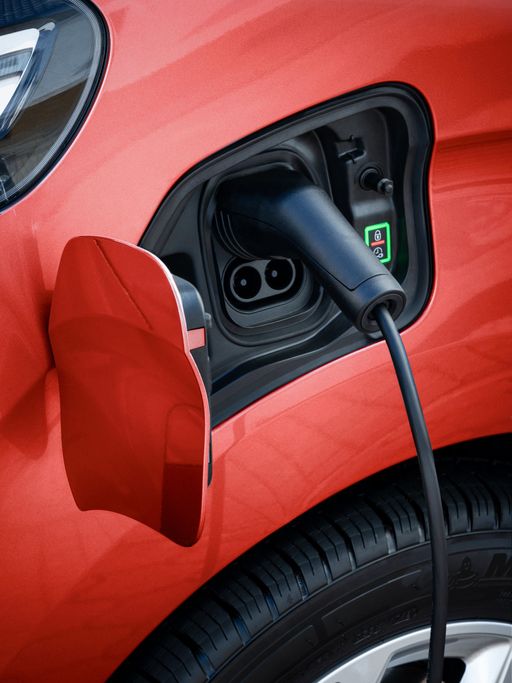 @ Stellantis
@ Stellantis

|

|
|
|
|
Costs and Consumption |
|
|---|---|
|
Price
30800 - 37200 £
|
Price
40800 - 53200 £
|
|
Consumption L/100km
-
|
Consumption L/100km
-
|
|
Consumption kWh/100km
16.7 - 17.8 kWh
|
Consumption kWh/100km
24.6 - 24.9 kWh
|
|
Electric Range
270 - 385 km
|
Electric Range
213 - 347 km
|
|
Battery Capacity
39 - 59 kWh
|
Battery Capacity
-
|
|
co2
0 g/km
|
co2
0 g/km
|
|
Fuel tank capacity
-
|
Fuel tank capacity
-
|
Dimensions and Body |
|
|---|---|
|
Body Type
Hatchback
|
Body Type
Bus
|
|
Seats
5
|
Seats
8
|
|
Doors
5
|
Doors
5
|
|
Curb weight
1580 - 1756 kg
|
Curb weight
1952 - 2165 kg
|
|
Trunk capacity
385 - 394 L
|
Trunk capacity
0 L
|
|
Length
4490 mm
|
Length
4981 - 5331 mm
|
|
Width
1788 mm
|
Width
2010 mm
|
|
Height
1540 - 1545 mm
|
Height
1890 mm
|
|
Payload
384 - 415 kg
|
Payload
925 - 989 kg
|
Engine and Performance |
|
|---|---|
|
Engine Type
Electric
|
Engine Type
Electric
|
|
Transmission
Automatic
|
Transmission
Automatic
|
|
Transmission Detail
Reduction Gearbox
|
Transmission Detail
-
|
|
Drive Type
Front-Wheel Drive
|
Drive Type
Front-Wheel Drive
|
|
Power HP
150 - 217 HP
|
Power HP
136 HP
|
|
Acceleration 0-100km/h
6.9 - 7.9 s
|
Acceleration 0-100km/h
13.1 - 14.3 s
|
|
Max Speed
144 - 157 km/h
|
Max Speed
130 km/h
|
|
Torque
320 - 340 Nm
|
Torque
260 Nm
|
|
Number of Cylinders
-
|
Number of Cylinders
-
|
|
Power kW
110 - 160 kW
|
Power kW
100 kW
|
|
Engine capacity
-
|
Engine capacity
-
|
General |
|
|---|---|
|
Model Year
2019
|
Model Year
2024
|
|
CO2 Efficiency Class
A
|
CO2 Efficiency Class
A
|
|
Brand
Nissan
|
Brand
Vauxhall
|
Nissan Leaf
Introduction to the Nissan Leaf: A Pioneer in Electric Mobility
The Nissan Leaf has established itself as a trailblazer in the realm of electric vehicles (EVs) since its launch. As we delve into its present-day iterations, the Leaf continues to soar in popularity due to remarkable advancements in technology and sustainability. Let's explore what makes the Nissan Leaf a standout in today's automotive market.
Power and Performance: Under the Hood of the Nissan Leaf
The Nissan Leaf boasts a power output ranging from 150 to 217 PS, depending on the battery option chosen. The vehicle's electric motor, a product of cutting-edge engineering, offers instant torque ranging from 320 to 340 Nm, resulting in impressive acceleration capabilities. The 0 to 100 km/h dash is achieved in as little as 6.9 seconds, showcasing its prowess in electric performance.
Battery Technology: Efficient Energy Management
When discussing the Nissan Leaf, battery technology is at the forefront. The available battery capacities range from 39 to 59 kWh, supporting an electric range between 270 to 385 km. This flexibility allows drivers to choose a model that best fits their driving habits, providing peace of mind for longer journeys without frequent recharging.
Sustainability: The Environmental Edge
One of the primary attractions of the Nissan Leaf is its commitment to sustainability. As an all-electric vehicle, it produces zero CO2 emissions, placing it in the top tier of the CO2-efficiency class with an 'A' rating. This clean energy approach contributes significantly to reducing environmental impact and supports Nissan's drive towards a greener future.
Design and Comfort: Aesthetic Appeal and Practicality
The Nissan Leaf is not just about efficiency; it's also designed for comfort and utility. With its sleek hatchback body and dimensions of 4490 mm in length, 1788 mm in width, and a height of up to 1545 mm, it offers ample interior space. The boot capacity ranges from 385 to 394 litres, providing sufficient storage for everyday needs. The model accommodates five passengers comfortably, ensuring a pleasant ride for everyone.
Innovations and Safety: Advanced Features for Peace of Mind
Nissan equips the Leaf with an array of intelligent features that enhance safety and convenience. The available equipment lines, including N-CONNECTA, Tekna, e+ N-CONNECTA, and e+ Tekna, offer varying levels of technology integration. ProPILOT Assist, e-Pedal, and a comprehensive suite of driver-assistance technology are just a few examples that highlight Nissan's commitment to innovation in the EV market.
Conclusion: The Nissan Leaf Continues to Lead
With prices ranging from €35,900 to €43,400, the Nissan Leaf remains an attractive choice for those looking to embrace electric mobility. It perfectly balances performance, design, and sustainability, making it a compelling choice in the competitive EV landscape. The Nissan Leaf not only represents the future of driving but also reinforces why it continues to be a leader in the electric vehicle community.
Vauxhall Zafira Life
An Introduction to the Opel Zafira Life
The Opel Zafira Life is a beacon of innovation and practicality within the electric vehicle segment. Combining space, efficiency, and modern technology, it stands out as a formidable choice for families and businesses alike. This detailed overview delves into the technical prowess and innovative features that make the Zafira Life a leading player in its category.
Technical Specifications
At the heart of the Opel Zafira Life lies an electric motor delivering a robust 136 PS (100 kW) of power. This ensures seamless performance across various driving conditions. With a torque of 260 Nm, the vehicle ensures a smooth and controlled drive, ideal for both urban and highway settings.
Powering the Zafira Life are two battery options—a 50 kWh battery and a larger 75 kWh variant. Depending on your choice, the driving range extends from 213 km to an impressive 347 km, allowing flexibility to meet diverse travel needs. Environmental sustainability is underscored with a zero CO2 emission rating, epitomising its eco-friendly credentials.
Innovative Design and Features
The Zafira Life encapsulates modernity with its dynamic exterior design, accentuated by sleek lines and a robust build. Emphasizing versatility, it is available with up to eight seats, making it perfect for large families or group travels. Each seating row is crafted for comfort, ensuring every passenger experiences a premium ride.
From a technological perspective, the Zafira Life is equipped with state-of-the-art features including an intuitive infotainment system, advanced driver assistance technologies, and connectivity options designed to enhance every journey.
Performance
Engineered for performance and efficiency, the Opel Zafira Life boasts a top speed of 130 km/h. While acceleration from 0-100 km/h may range between 13.1 to 14.3 seconds, this people-carrier prioritizes a comfortable ride over outright speed, focusing instead on reliability and energy efficiency.
The energy consumption of 24.6 - 24.9 kWh/100 km aligns with the demands of modern drivers seeking sustainability without sacrificing practicality. The combination of automatic transmission and front-wheel drive ensures ease of use and familiarity for drivers of all levels.
Practicality and Comfort
Practicality is a hallmark of the Opel Zafira Life, featuring ample cargo and passenger space without compromising on a compact footprint. The vehicle's dimensions, with a length ranging between 4981 mm and 5331 mm, effortlessly balance internal space and manoeuvrability. Despite its substantial carrying capacity, it maintains a manageable kerb weight of 1952 - 2165 kg.
For different needs and budgets, the Zafira Life is available in various equipment lines, including the Edition and GS variants. With a price range of €47,550 to €62,100, it caters to those looking for accessibility without forgoing luxury and innovation.
Conclusion
The Opel Zafira Life is more than just a vehicle; it’s a statement of sophisticated mobility and technological advancement. By blending efficiency, innovative features, and versatility, it caters to the modern driver's needs with poise and assurance. For those looking to the future of transportation, the Zafira Life represents an exciting and reliable choice that stands to redefine the standards of spacious, electric driving.
The prices and data displayed are estimates based on German list prices and may vary by country. This information is not legally binding.
